Overview
I come from a Delphi background but lately I wanted to learn a new language to test myself. Programming can become what seems somewhat rather easy once you familiarize yourself with the language and syntax and so I wanted to learn C# in order to find out whether I have really progressed as a developer or whether or not I am just relying on my own memory on how to achieve certain coding tasks.
So with that in mind I am new to C# / Visual Studio 2015, I have been spending a couple of hours using it for the last few days and aside from getting around the syntax differences the logical thinking of how to program has not changed or gone away.
I am in my early days of C# and although I was quite enjoying stepping out of my comfort zone and learning this new language, I feel like I may need to stop. The reason for this being is that I didn't realize how easy it seems the built Applications source can be obtainable (unless I am missing something obvious).
It started with my first simple C# project - a Notepad clone. I loaded this into Ida just to take a peek and see what I could find, the first striking thing was under function names it listed all my control and method names:
This prompted me to look at things such as obfuscation of function names etc and it seems there is lots of posts about this. But that is not the most surprising thing, I found an open source Application called dnSpy (I assume stands for .Net spy)
So I loaded my C# Text Editor executable into dnSpy and was quite shocked to see the source code was sitting there and easily readible:
There is some minor differences but the code is very much the same:
/// <summary>
/// Create a new text document.
/// </summary>
/// <param name="sender"></param>
/// <param name="e"></param>
private void mnuNew_Click(object sender, EventArgs e)
{
// Check if the editor has been modified.
if (_dirty)
{
// Prompt the user if they would like to save the document or not.
DialogResult dialogResult = MessageBox.Show(String.Format("Do you want to save changes to {0}?", _fileName), "Text Editor", MessageBoxButtons.YesNoCancel);
if (dialogResult == DialogResult.Yes)
{
mnuSave_Click(null, null);
}
else if (dialogResult == DialogResult.No)
{
// Create the new document.
NewDocument();
}
}
}
The Notepad application built in Visual Studio I set to Release mode, I assume it comes with no debugging information etc.
The above worries me enough to just abandon C# / Visual Studio altogether. Delphi compiles to machine code and I believe .Net is some kind of interpreted language (translated and runs through .Net?).
My question is, is it really that simple to view the source code of an Application written in .Net built using C# / Visual Studio? It seems too easy and I am getting alarm bells telling me to stop coding in .Net and go back to Delphi otherwise any future work could just be stolen.
I understand Applications can be reversed, it doesn't matter if they are compiled in Delphi, C++ etc they can all be reversed but having the source code so easily viewable from an Application built in .Net / C# / Visual Studio seems rather odd and as I say is killing my mood to learn more about C# and .Net programming.
Are there other steps that need to be taking from within the Visual Studio IDE to make released projects not contain openly viewable source? Did I miss a simple step somewhere or is it really this simple to view the source code of a .Net Application?


